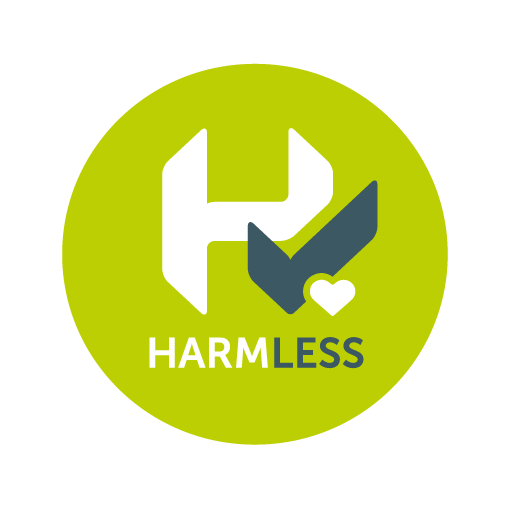
Bleeding Out: Understanding the Causes and Immediate Responses
Share
Bleeding is a natural response to injury, serving as the body's way of healing itself. However, when the bleeding becomes excessive or uncontrollable, it can lead to complications, some of them severe. Understanding the causes of excessive bleeding and knowing the appropriate first aid responses is crucial in ensuring the best chance of recovery. In this article, we will look at the various aspects of bleeding out, including the medical terminology, potential causes, and what it means when the patient is bleeding out of ears or both nostrils.
Understanding the Medical Term for Bleeding Out
The medical term for bleeing out is usually known as a hemorrhage (uncontrolled excessive bleeding). The medical term exsanguination (bleeding to death) can also be used to describe bleeding out and this is because bleeding out refers to the severe loss of blood, which can occur internally or externally. It may not always be obvious when someone is at risk of bleeding out simply because many internal injuries are not visible to the untrained eye. When left unattended, bleeding out can lead to life-threatening consequences including organ failure and hypovolemic shock. It is crucial to recognise the signs of excessive bleeding and respond appropriately to prevent further complications.
Causes of Bleeding Out

There are many scenarios which could result in bleeding out. These include but are not limited to
- fractures
- severe bruising
- wounds that sever major blood vessels (i.e. arteries and veins)
- viruses that attack the blood vessels
- some medications
- some hereditary conditions.
Symptoms of Bleeding Out

The most obvious sign someone might be a candidate for bleeding out is excessive amounts of blood flowing from their body. If the source is an artery, the blood will be pumping out. If the source is a vein the blood will be oozing out.
However, if a person has sustained internal injuries, it may not be obvious they are starting to bleed out. However, there are some potential symptoms which suggest you need call 111 emergency services for immediate medical help.
The more severe the bleeding out, the more symptoms from the below list the injured person will experience. Symptoms worsen the more blood that has been lost
- dizziness
- sweating
- fatigue
- nausea
- headache
- pale skin
- cold or clammy skin
- rapid heart rate
- weak pulse
- rapid, shallow breathing
- lightheadedness
- dizziness
- confusion
- loss of consciousness
Bleeding out of Ears: While uncommon, bleeding from the ears can be a sign of a severe head injury or a skull fracture. In such cases, immediate medical attention is paramount so call 111 as soon as you have made yourself and the injured person safe.
Bleeding Out of Both Nostrils: Bleeding from both nostrils can be a result of various factors, including trauma, high blood pressure, or underlying medical conditions. Because it is impossible to tell if bleeding from both nostrils is life threatening, it is best to call 111 for emergency medical assistance.
Excessive bruising and/or swelling: After an impact injury, some bruising is normal, however, if the bruising covers a large area, or is in vulnerable part of the body, such as the abdomen, and/or there is a lot of swelling, it is best to seek immediate medical assistance by dialing 111 as it could be an indicator that the injured person is bleeding out.
Immediate Responses and Fracture First Aid

In cases where excessive bleeding is suspected, it is crucial to provide prompt and appropriate first aid:
1. Stay Calm and Assess the Situation: Assess the potential severity of the bleeding and the extent of any other injuries
2. Apply Pressure: Apply pressure on the wound and control the bleeding. A trauma or compression bandage is a handy product to have handy for exactly this situation
3. Elevate the Injured Limb: Elevating the injured limb can help reduce blood flow and slow the bleeding.
4. Immobilise any fractures: Use a lightweight splint and a bandage to immobilise any suspected fractures and prevent further damage.
5. Seek Immediate Medical Attention: Even if the bleeding seems to be under control, it is essential to seek professional medical help to address the underlying issues effectively.
Medical Term for Bleeding Out and Its Implications

Conclusion
Bleeding out is a serious medical emergency that requires immediate attention and appropriate management. Understanding the causes, recognising the signs, and knowing the appropriate responses are essential in preventing further complications. With the right first aid products and timely medical intervention, it is possible to effectively manage instances of excessive bleeding and improve the chances of a successful recovery. Always stay prepared with the necessary first aid products, and be equipped to handle emergencies with confidence and efficiency.
Disclaimer: The content contained on this site is general information only. It is in no way intended as medical advice or as a substitute for medical treatment and we are not making any recommendations for your personal situation. Please consult your medical professional.
